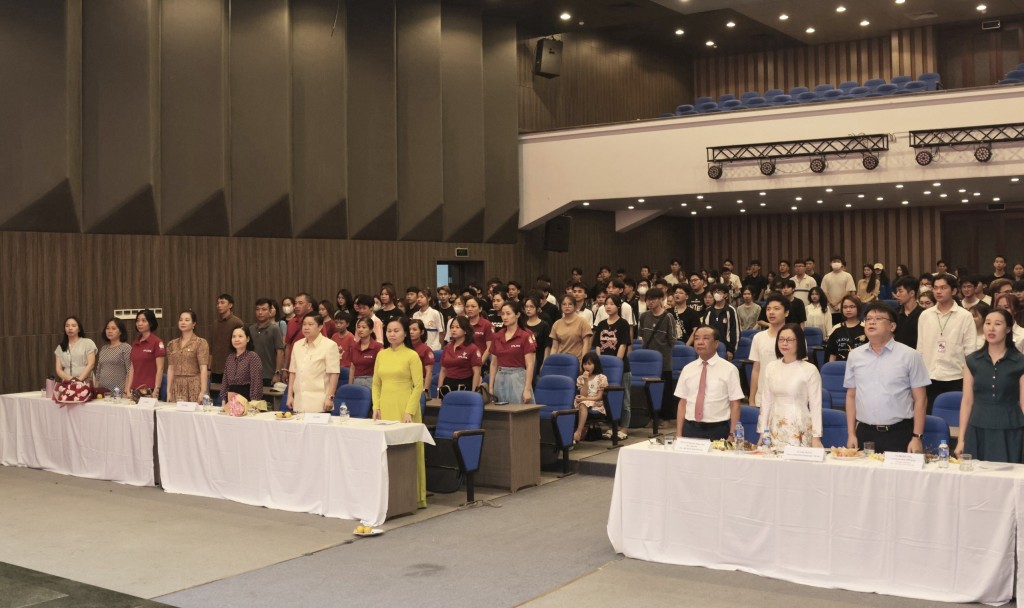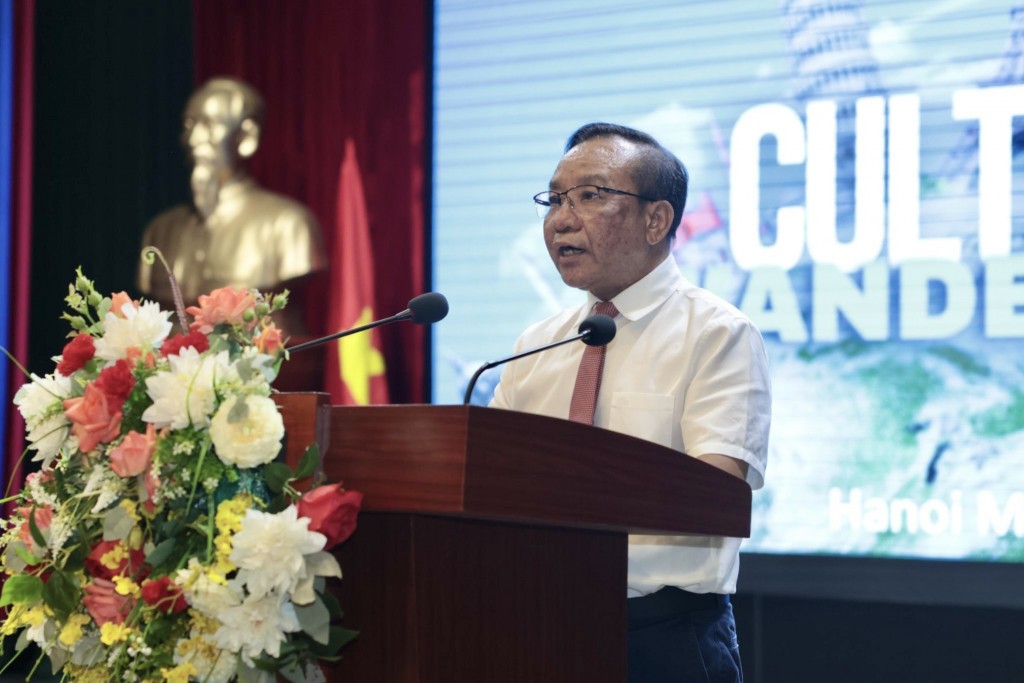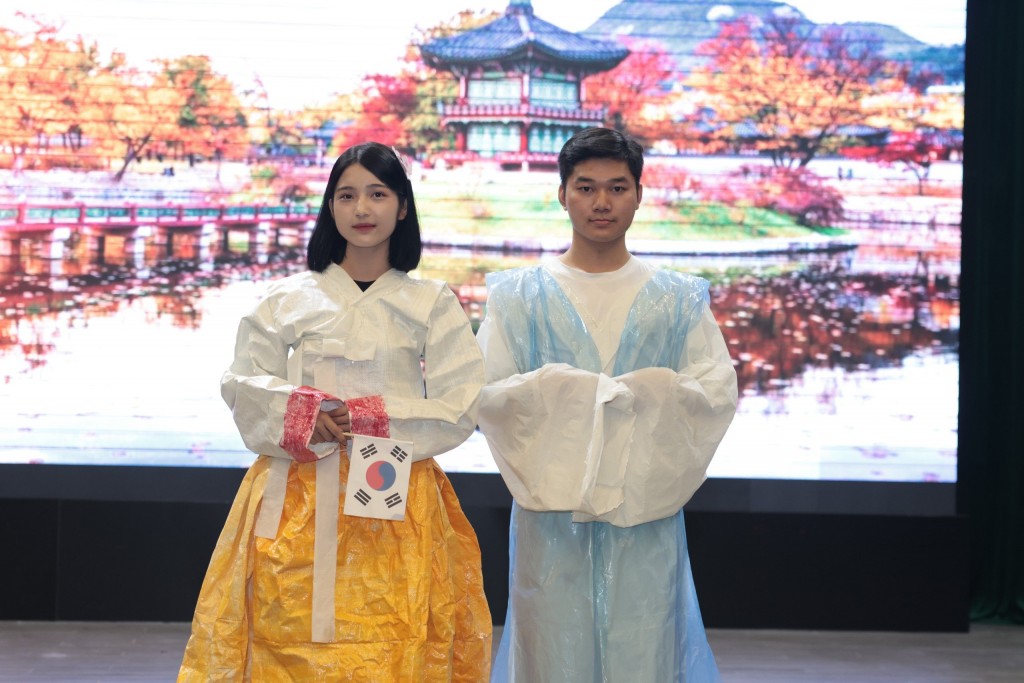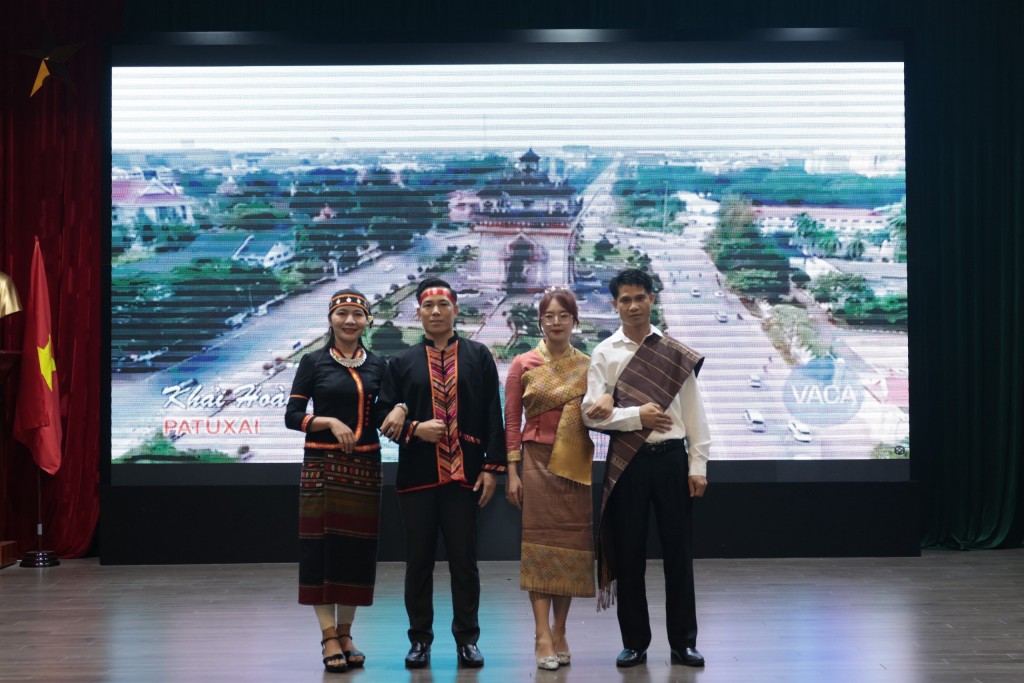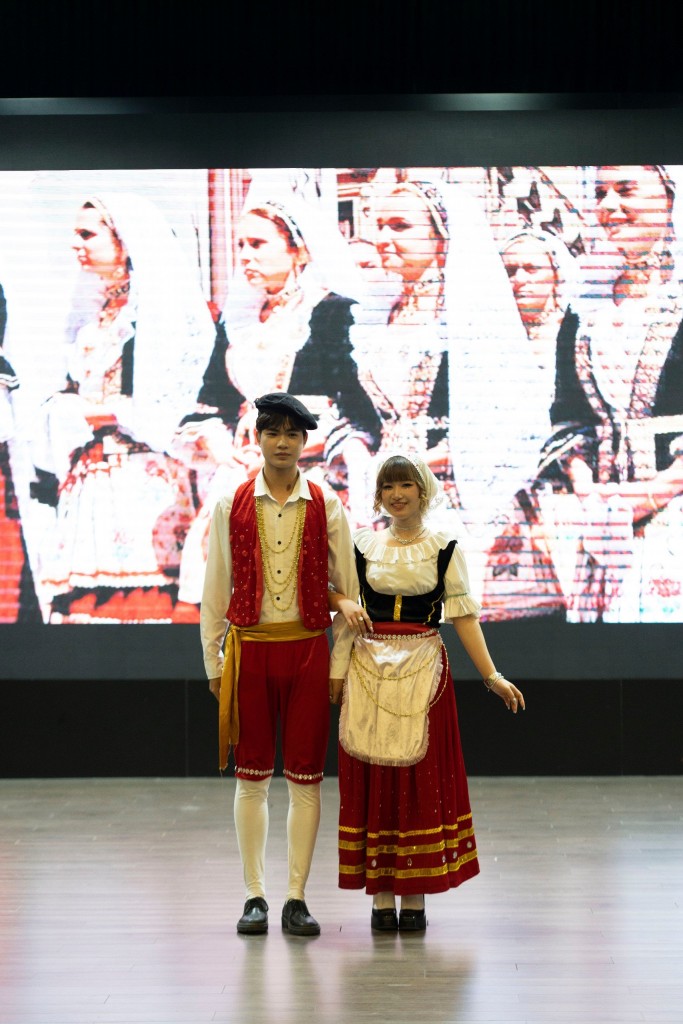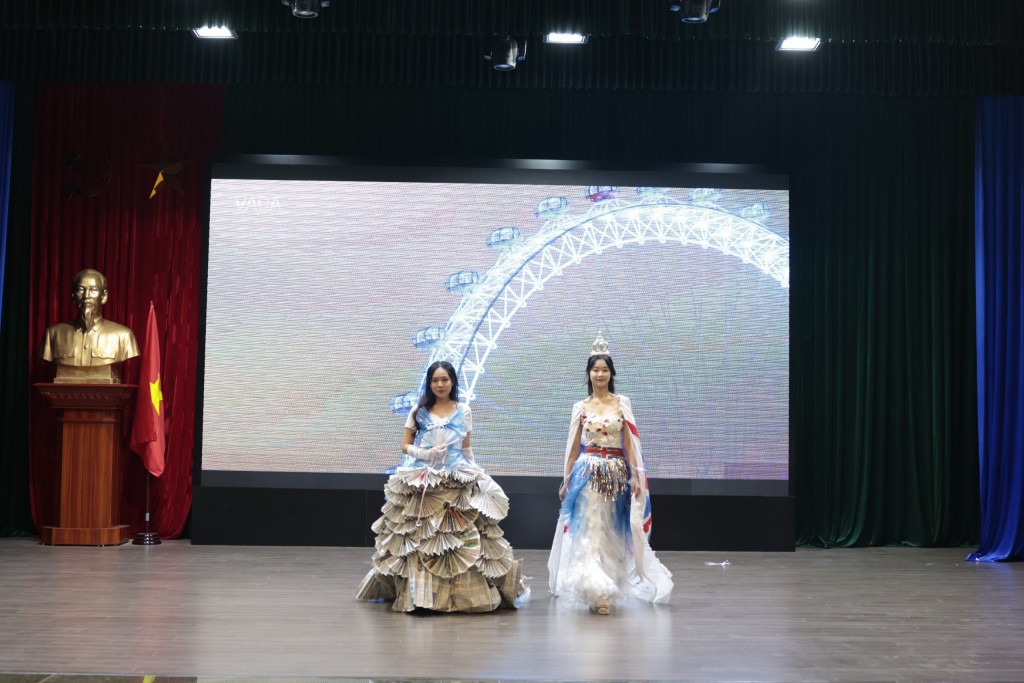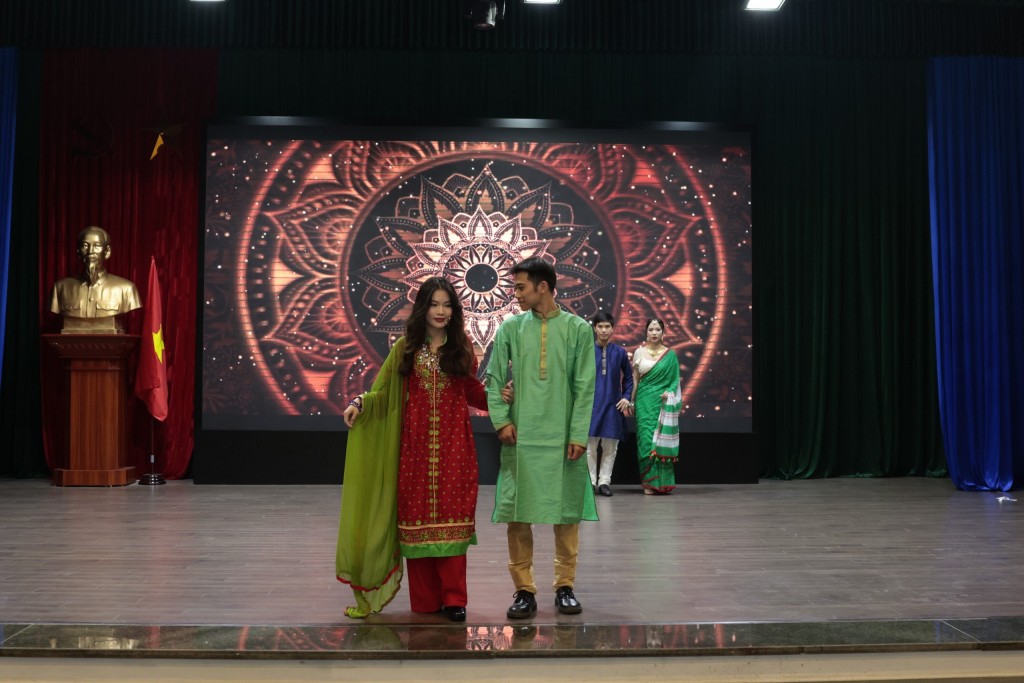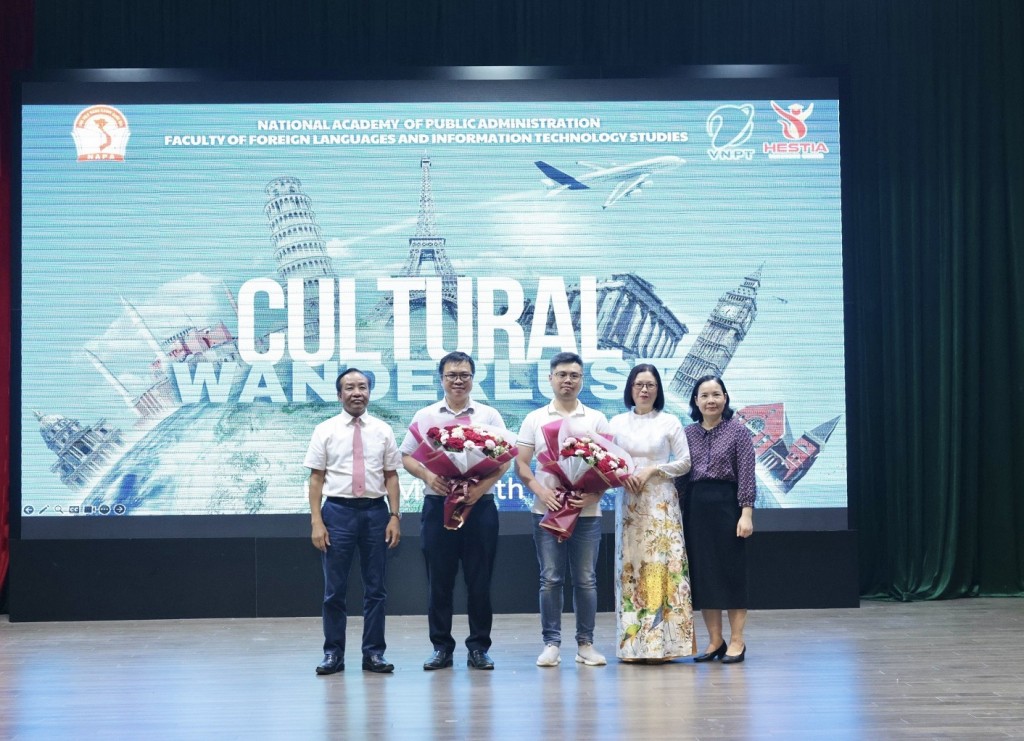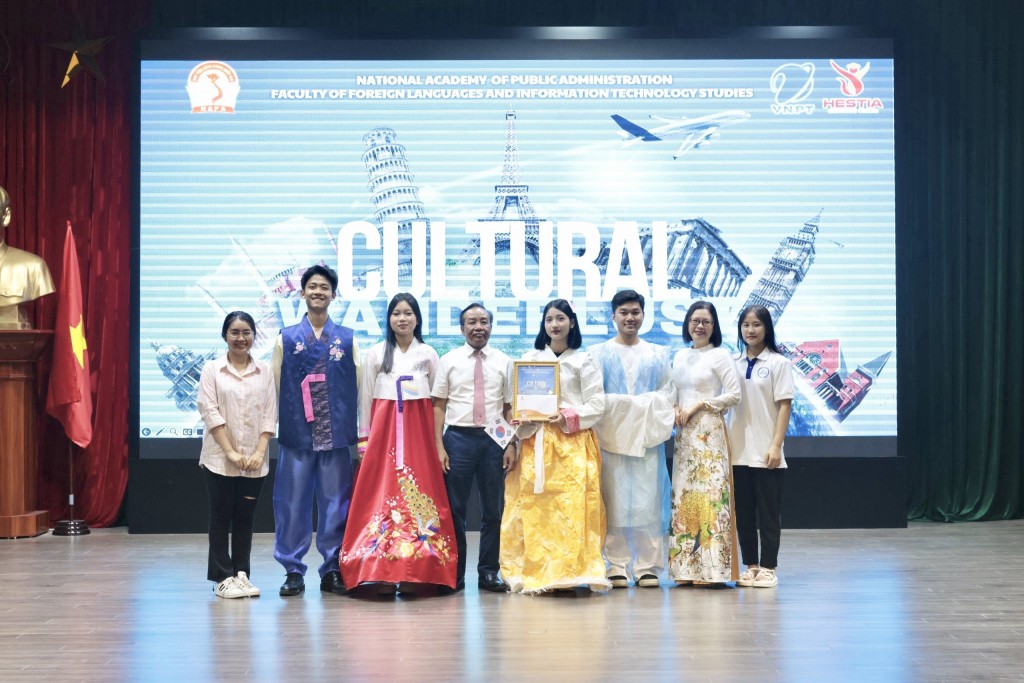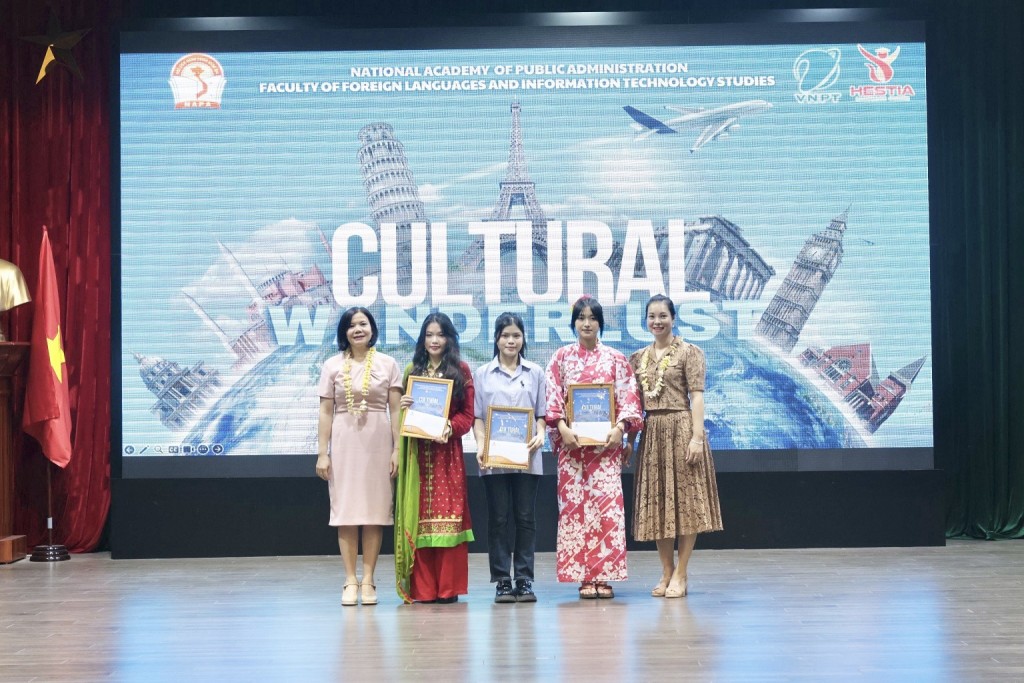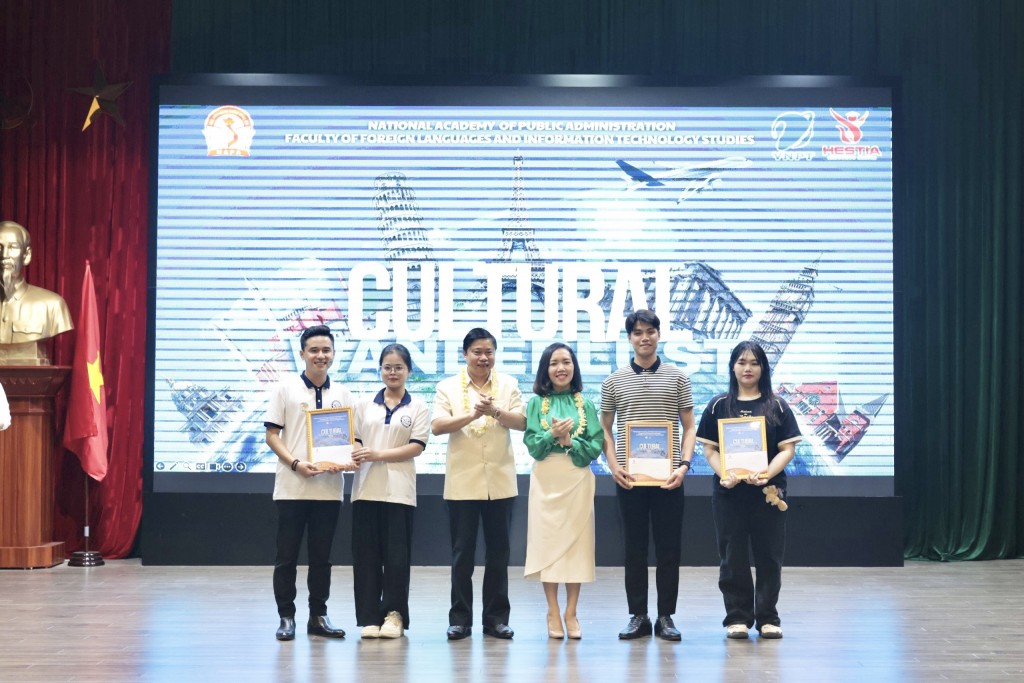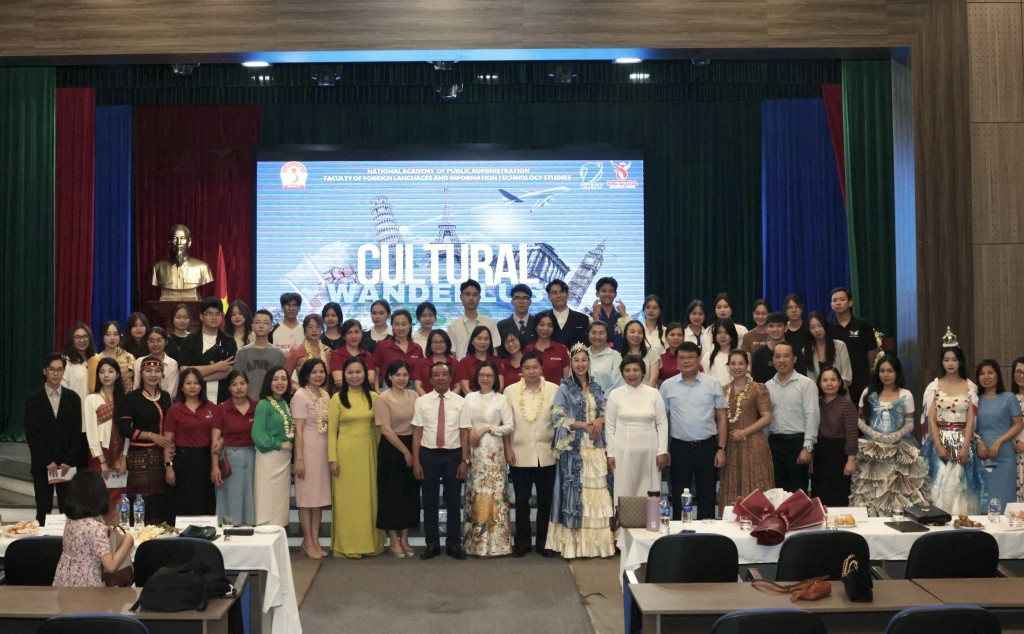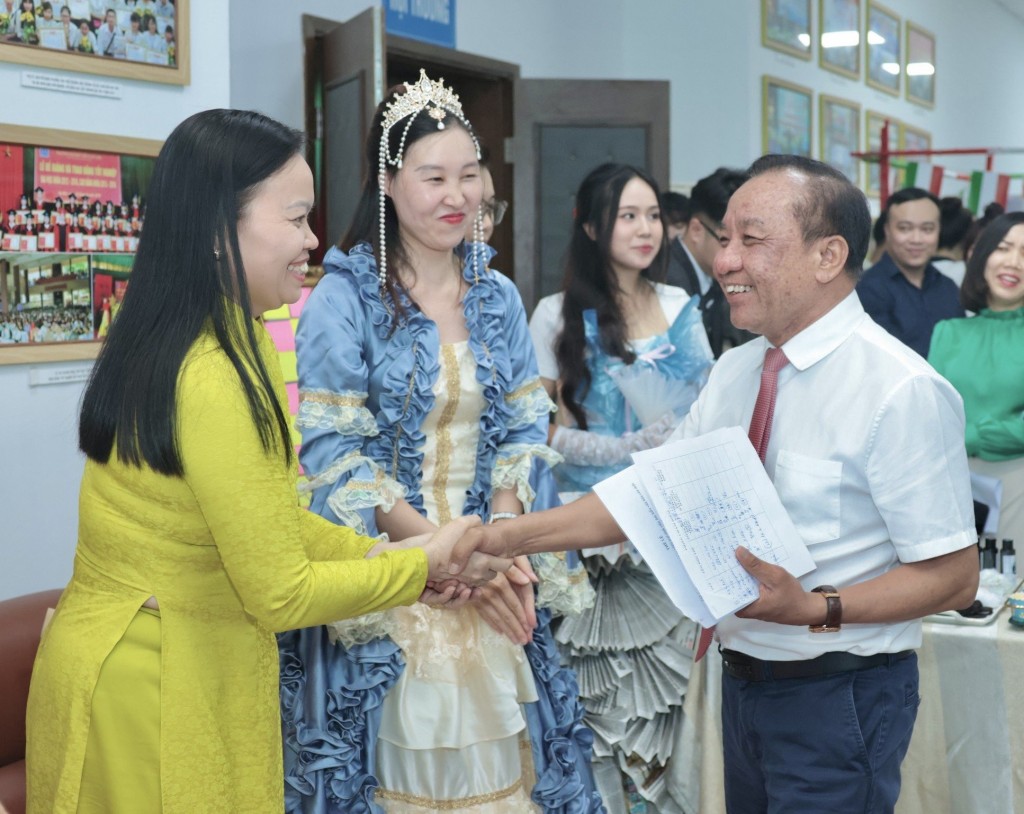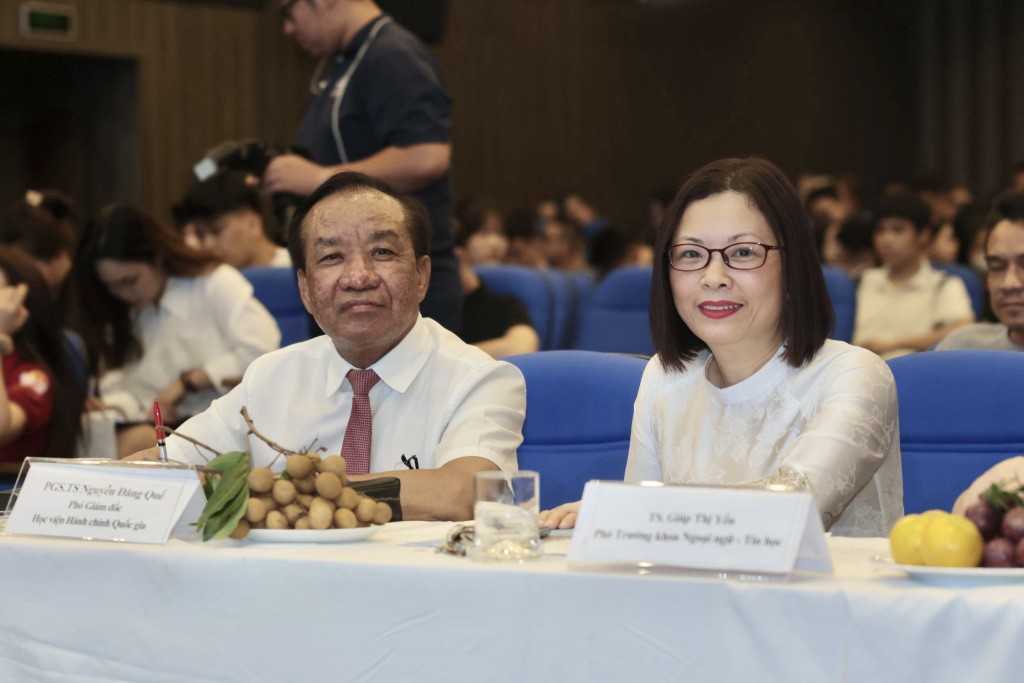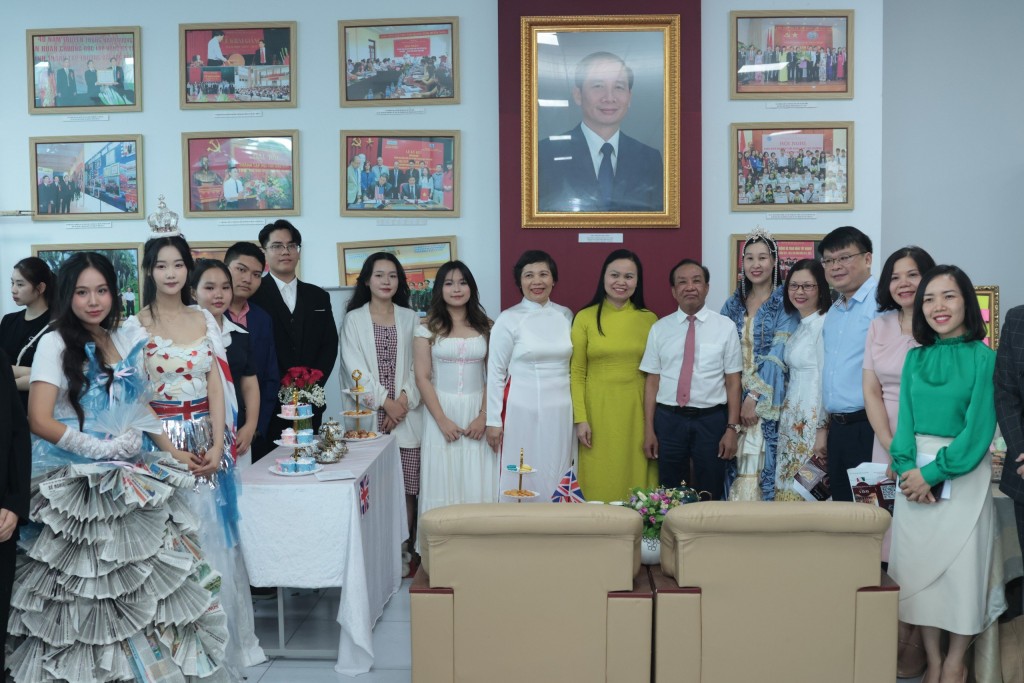On May 18, 2024, at the NAPA Hall at 371 Nguyen Hoang Ton Street, the National Academy of Public Administration (NAPA) organized the extracurricular activity “Student camp exploring cultures of various countries around the world (Cultural Wanderlust)”.
On the side of NAPA, there were Dr. Nguyen Dang Que, NAPA Vice President; Assoc. Prof. Dr. Nguyen Van Hau, Chief of Office of NAPA; Dr. Bui Huy Tung, Director of the Department of Refresher Training Management; Assoc. Prof. Dr. Nguyen Thi Thu Ha, Dean of the Faculty of Interdisciplinary Sciences; Dr. Nguyen Thi Thuy Hoa, Vice Dean of the Faculty of Foreign Language and Information Technology Studies; Dr. Giap Thi Yen, Vice Dean of the Faculty of Foreign Language and Information Technology Studies, and NAPA leaders of units, lecturers, and students.
The program aims to create an English-speaking environment and provide students with more opportunities to practice and apply their knowledge in real-life communication situations. It will also improve students’ English communication skills, stimulate creativity and interest in extracurricular activities, and promote the English learning movement within the student community. Additionally, it aims to enhance the spirit of solidarity, organizational coordination, and teamwork, giving NAPA students the opportunity to bond and take pride in their academic environment at NAPA, while also celebrating the 65th founding anniversary of NAPA.
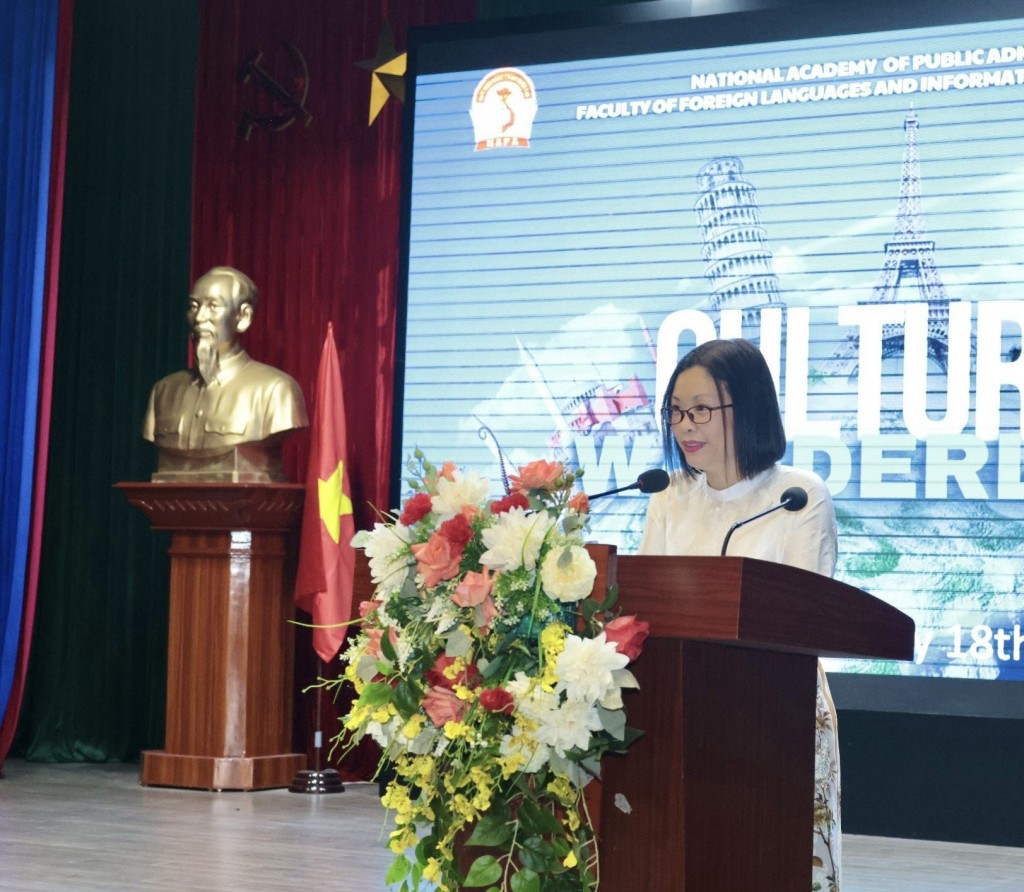
Dr. Giap Thi Yen, Vice Dean, Faculty of Foreign Language and Information Technology Studies, delivering the opening remarks.
According to Dr. Giap Thi Yen, Vice Dean, Faculty of Foreign Language and Information Technology Studies, when learning a language, immersing oneself in its culture is extremely necessary. A language learner should read literature books, read history books, watch movies, watch the news, listen to music and even try their traditional dishes. All these activities will help language learners gain a deeper understanding of the language and culture, enhancing their communication effectiveness. The extracurricular program called “Cultural Wanderlust” is a chance for students from seven NAPA faculties to explore and learn about the cultures of some English-speaking countries, such as the UK, USA, Italy, Singapore, Bangladesh, Japan, Korea, Laos, and France.
On behalf of the Faculty of Foreign Language and Information Technology Studies, Dr. Giap Thi Yen sent her sincere thanks to the Board of Directors, sponsors, faculties and students for their support and participation in the activity.
In his remarks, Dr. Nguyen Dang Que, NAPA Vice President, emphasized that over its 65 years of development, NAPA has established many training and exchange cooperation programs with countries such as the UK, France, Germany, the USA, Japan, Russia, Poland, Australia, Bangladesh, and Laos. These countries have significantly contributed to the vibrant culture of NAPA today. Culture is the essence of a country. In the process of integration and development, the culture of each nation will continue to evolve. It not only absorbs the progressive values of other cultures but also enriches its own, promoting its culture to other countries and other peoples worldwide. In the current context of extensive cooperation, NAPA is keenly aware of the importance of using foreign languages (especially English) for cultural exchange and integration. This acts as a form of soft power that invisibly influences public consciousness and international opinion. NAPA always encourages students to be dynamic and creative and to develop comprehensively alongside accumulation of knowledge and skills. The program “Cultural Wanderlust” is one of the first events celebrating the 65th founding anniversary of NAPA, allowing students to gain a deeper understanding of cultures and peoples of countries that have cooperated with NAPA over the years. NAPA wants students to understand that they are the building blocks contributing to the unique cultural identity of NAPA and that they are also the agents that spread and develop NAPA’s culture to other units, regions and countries. On behalf of the NAPA Board of Directors, Dr. Nguyen Dang Que sincerely thanked the delegates, sponsors, lecturers, and students for participating in the activity.
Performances at the program:
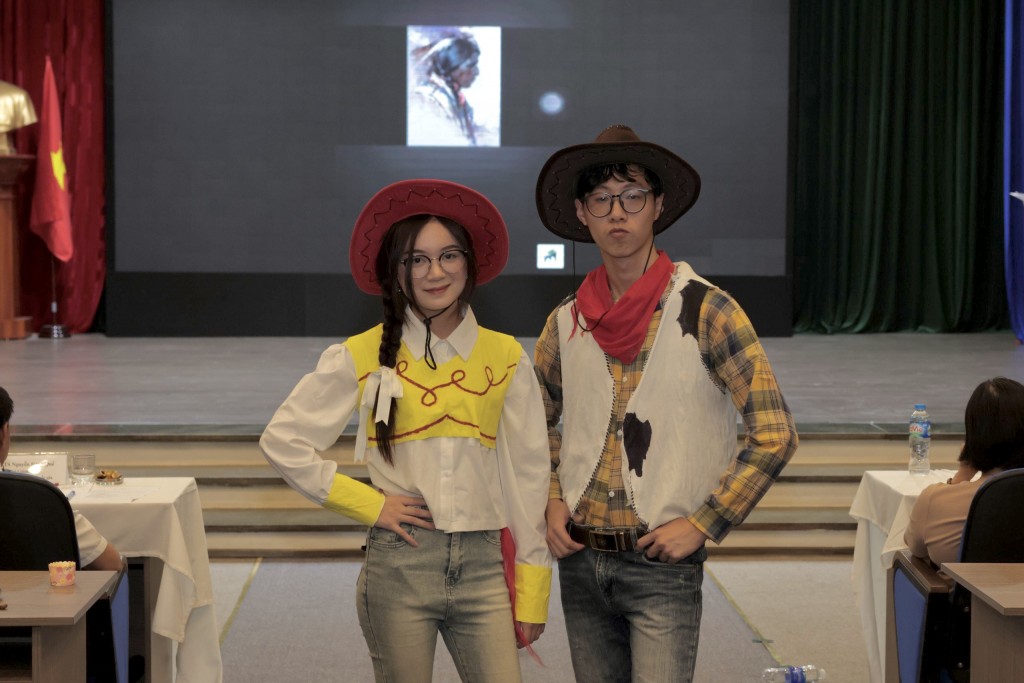
Within the framework of the program, teams set up and decorated their tents, using English to introduce the unique and typical culture of their country. Other activities included cuisine, music, games, and traditional costume presentations, along with cultural performance. The teams used English to introduce the traditional costumes of their countries, with the costumes made from recycled, environmentally friendly materials.
The first prize of the program was awarded to the Faculty of Archival Sciences and Office Management; the second prize was awarded to the Faculty of Interdisciplinary Sciences; the third prize was awarded to the Faculty of Foreign Language and Information Technology Studies, the Faculty of Administrative Sciences, and the Faculty of Social Management.
The awarding ceremony:
Some photos at the event:


